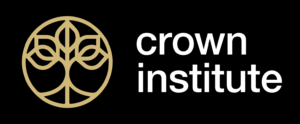Articles
What we’re contemplating, doing, and reading.
Crown Institute’s ‘Compassion and Dignity for Educators’ Featured in Hechinger Report
This article appeared in The Hechinger Report, a national nonprofit, independent news organization focused on inequality and innovation in education. The article features Compassion Institute’s partner in the education sector, the Renée Crown Wellness Institute at University of Colorado, Boulder and their course Cultivating Compassion and Dignity in Ourselves and Our School. The article shares insights from Dr. Ashley Potvin, one of the project’s leaders and a research associate at Crown Institute and course co-author Jovita Schiffer from the Boulder Valley School District and a consultant to the Crown Institute. You can find the original article here.

Putting Compassion on the Teacher Prep Syllabus
A new, masters-level course called ‘Compassion and Dignity for Educators’ is being offered at the University of Colorado, Boulder
by LILLIAN MONGEAU March 2, 2022
Editor’s note: This story led off this week’s Future of Learning newsletter.
The ability to understand a child’s struggles — and then do or say just the right thing to help them through — is arguably the skill society prizes most in its teachers.
Books have been written about it. Movies have been made about it. Indeed, many assume all teachers are innately compassionate.
But educators at one university say compassion is something that can and should be taught. A new course, called Cultivating Compassion and Dignity in Ourselves and Our Schools, offered by the University of Colorado, Boulder, teaches the practice of compassion, and the philosophy that guides it.
The course, which has been through the university’s review process, was co-designed by a team of educators, researchers and “contemplative experts,” said Ashley Potvin, one of the project’s leaders and a research associate at the university’s Renée Crown Wellness Institute, an interdisciplinary team of academics dedicated to youth wellness.
In the course, teachers learn about techniques for “settling the mind” to allow for better focus and “setting an intention” to provide a higher goal before a difficult interaction. For example, before a meeting with parents a teacher is worried might be angry, the teacher would stop, take a deep breath, and set an intention to stay calm and find a solution for the child.
Finding calm and focus have not become easier in year three of pandemic schooling.
“It’s a hard time to be an educator right now,” Potvin said. “Folks are finding themselves coming to these kinds of opportunities [to learn about compassion] in part because of burn-out and deep stress.”
To be compassionate means taking action to relieve suffering, said Potvin, who was a classroom teacher before becoming a researcher. She and others involved in the course see that focus as the key in teaching compassion as a framework for educators. Taking action moves teachers beyond just having empathy, which can be stifling when faced with crisis after crisis, to having agency.
“I believed in the work before I started, but now I’m living and breathing it,” said course co-author Jovita Schiffer, the extended learning and community programs manager for the Boulder Valley School District and a consultant to the Crown Institute.
Schiffer said that teachers she knows have always exhibited immense compassion for their students. What she likes about the course she helped design is that it also helps teachers have compassion for themselves and for other adults. To do that, she said, is to recognize our “common humanity,” a key concept in the formal practice of compassion that holds we are all connected, regardless of skin color or professional status or any other social signifier.
“I think it’s easy to pick out what’s different between us and someone else, but when you start to look for the things that are the same, that’s where we find the connection with others and where compassion can occur,” Schiffer said.
Seeing someone else – a principal, a parent – make a mistake becomes a moment to recognize the vulnerability of a fellow human rather than a moment to criticize. And that’s as good for the person who observes the mistake as the person who makes it, Schiffer said.
“What I learned most is that compassion is wonderful to receive, but it’s just as great a gift, if not more, to give it,” she said. “It can be very fulfilling. It can bring peace. It’s a great way to counter stress.”
The course at the University of Colorado can be taken as a certificate course or “stacked” with other certificates offered by the school to add up to a master’s degree in teacher leadership. Enrollment is currently open.

